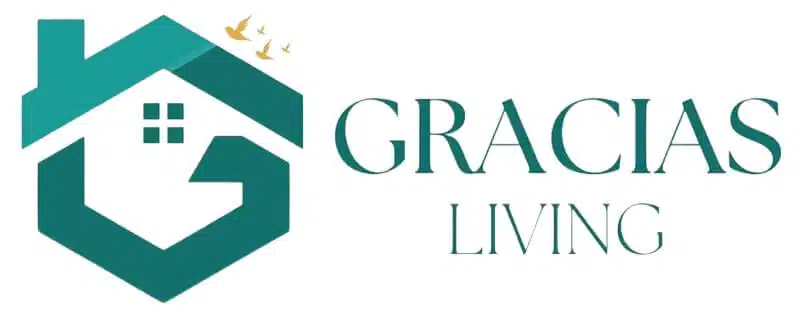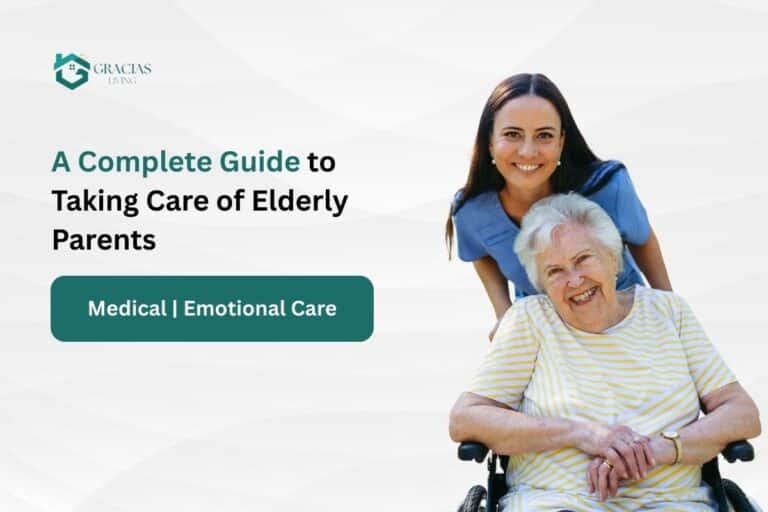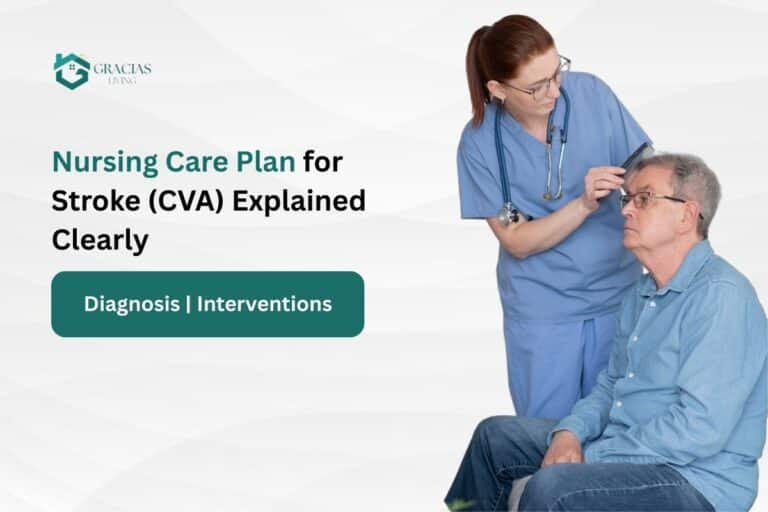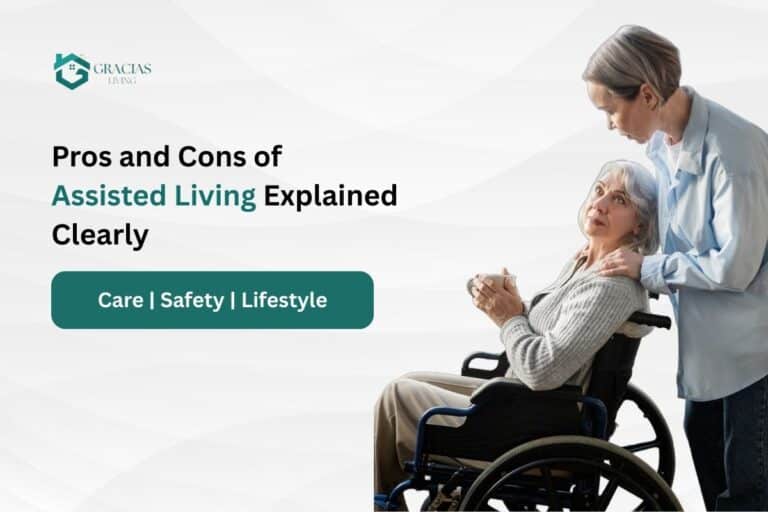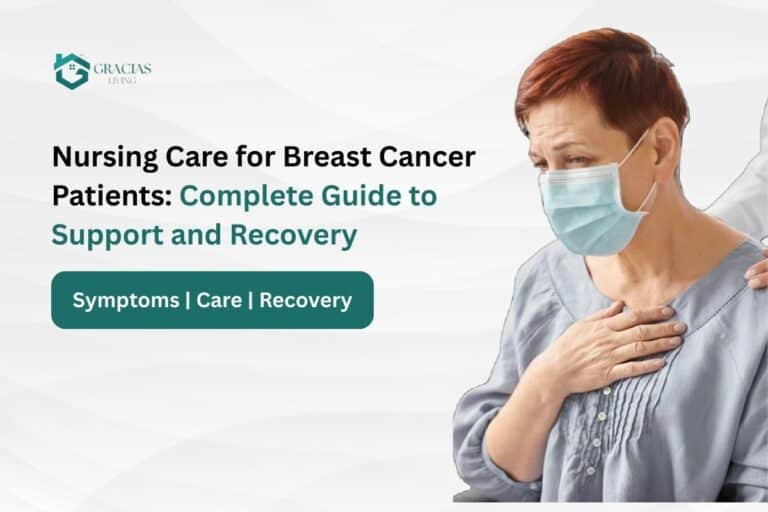Quick Summary of the article:
- Engagement activities are crucial for the well-being of assisted living residents, addressing issues like isolation, cognitive decline, and physical inactivity.
- Benefits of engagement activities include improved cognitive function, physical health, social connection, and independence.
- Gracias Living is a vibrant senior community with diverse engagement activities tailored to individual resident needs.
- Effective engagement activities involves assessing and customizing activities, flexible scheduling, encouraging family involvement, and maintaining open communication.
- Gracias Living is committed to continuous improvement and innovation ensuring the highest quality of life for residents.
Engagement activities in assisted living are not just a source of entertainment; they play a crucial role in the overall well-being of residents.
At Gracias Living, we understand that meaningful engagement is key to enhancing the quality of life for our seniors.
This blog delves into why engagement activities are essential and how they benefit our residents.
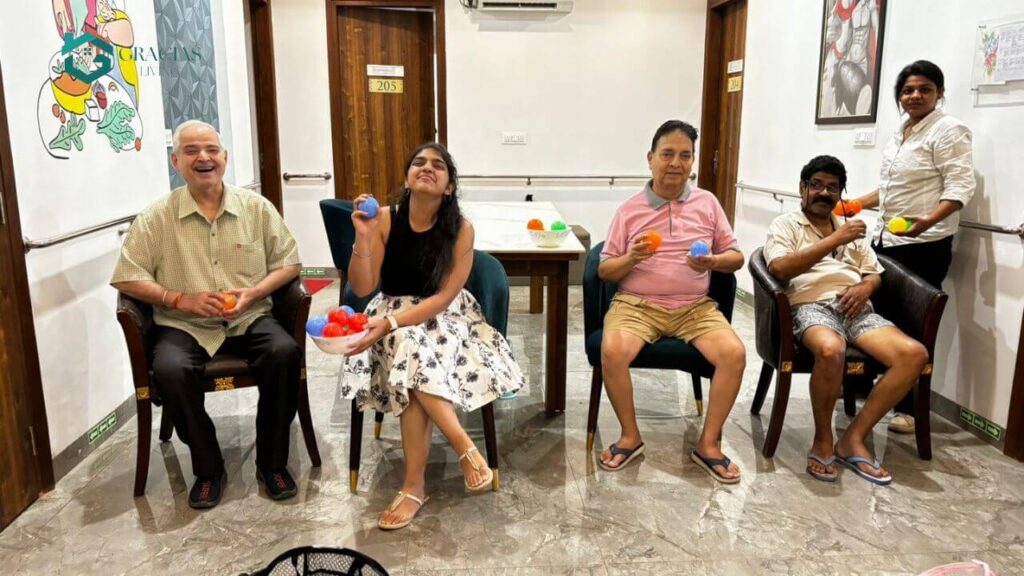
Understanding Engagement Activities in Assisted Living
Engagement activities are planned events and exercises that encourage residents to interact with their peers, caregivers, and surroundings.
These activities range from physical exercises, arts and crafts sessions, music therapy, gardening, and social events to cognitive games and educational workshops.
10+ Problems Engagement Activities Solve for Assisted Living Residents
- Isolation and Loneliness: Many seniors face isolation, leading to feelings of loneliness and depression. Regular engagement helps them stay connected with others.
- Cognitive Decline: Activities like puzzles, trivia, and memory games stimulate the brain, helping to slow cognitive decline.
- Physical Inactivity: Sedentary lifestyles can lead to various health issues. Physical activities keep residents active and healthy.
- Boredom: Without structured activities, boredom can set in, negatively impacting mental health. Engagement activities provide purposeful and enjoyable ways to pass the time.
- Loss of Independence: Engagement activities can foster a sense of independence by enabling residents to pursue their interests and hobbies.
- Depression and Anxiety: Regular social interaction and enjoyable activities can alleviate symptoms of depression and anxiety.
- Lack of Routine: A structured schedule of activities provides a sense of routine and stability.
- Deterioration of Motor Skills: Activities like arts and crafts help maintain fine motor skills.
- Loss of Social Skills: Social activities encourage residents to maintain and develop their social skills.
- Sense of Purpose: Engagement activities give residents a sense of purpose and achievement, boosting their self-esteem.
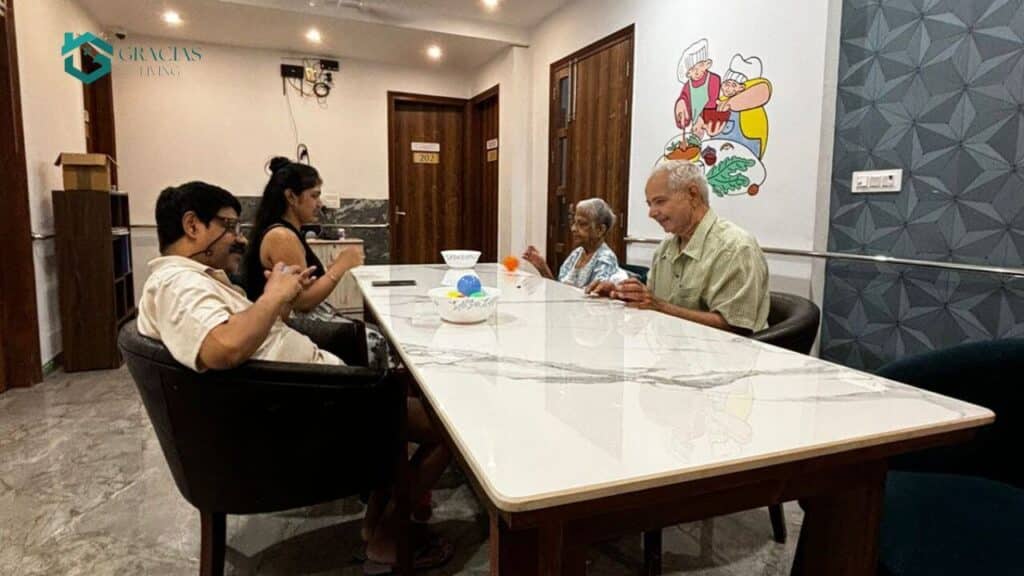
10+ Benefits of Engagement Activities in Assisted Living
- Enhanced Cognitive Function: Regular mental stimulation can improve memory and cognitive abilities.
- Improved Physical Health: Walking, dancing, and chair exercises enhance physical fitness.
- Better Emotional Health: Participation in enjoyable activities promotes happiness and reduces stress.
- Social Connection: Activities foster friendships and social bonds among residents.
- Increased Independence: Residents feel more independent when they can choose and engage in activities they enjoy.
- Skill Retention and Development: Activities help residents retain and develop various skills, from motor skills to social skills.
- Higher Quality of Life: Engaged residents often report a higher overall quality of life.
- Routine and Structure: Regular activities provide a comforting routine and structure.
- Sense of Community: Activities create a sense of belonging and community among residents.
- Personal Fulfillment: Engaging in hobbies and interests leads to personal fulfillment and satisfaction.
Implementing Effective Engagement Activities at Gracias Living
At Gracias Living, we are committed to creating a vibrant community where every resident can thrive.
Our activities are carefully designed to cater to the diverse interests and needs of our residents. We offer:
- Physical Activities: Yoga, chair exercises, walking clubs, and dance sessions to keep residents physically active.
- Cognitive Activities: Puzzles, trivia games, book clubs, and educational workshops to stimulate the mind.
- Creative Activities: Arts and crafts, music therapy, and gardening to foster creativity and relaxation.
- Social Activities: Social events, group outings, and communal dining to promote social interaction and friendship.
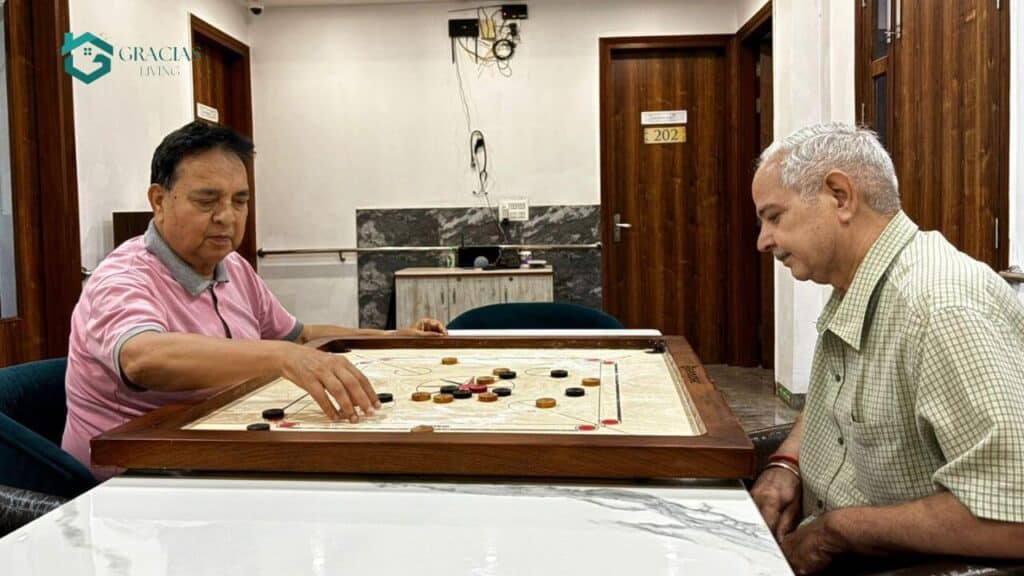
Tailoring Activities to Individual Needs
One of the keys to successful engagement is personalizing activities to meet the individual preferences and abilities of each resident.
At Gracias Living, we take the time to understand the interests and needs of our residents, ensuring that each activity is meaningful and enjoyable.
1. Assessment and Customization
We begin with a thorough assessment of each resident’s interests, hobbies, and capabilities. This information helps us tailor activities that are both stimulating and suitable for their level of ability.
For example, a resident with a passion for painting may be offered art classes, while another who enjoys gardening can participate in our horticulture program.
2. Flexible Scheduling
Flexibility in scheduling allows residents to engage in activities at their own pace and convenience.
Whether it’s a morning yoga session or an evening book club, we ensure that there are plenty of options to fit various preferences and lifestyles.
3. Encouraging Family Involvement
Family involvement is crucial to the well-being of residents. We encourage families to participate in activities and events, creating a supportive and inclusive environment.
4. Family Days and Events
Regular family days and special events provide opportunities for loved ones to spend quality time together.
This not only strengthens familial bonds but also boosts the morale of residents.
5. Open Communication Channels
We maintain open lines of communication with families, keeping them informed about upcoming activities and encouraging their input and participation.
This collaborative approach ensures that the needs and preferences of residents are always at the forefront.
Measuring the Impact of Engagement Activities
To ensure that our engagement activities are effective, we regularly measure their impact on residents’ well-being.
This helps us refine our programs, address any gaps, and continuously improve the quality of life for our residents.
1. Resident Feedback
Gathering direct feedback from residents is one of the most effective ways to gauge the success of our engagement activities.
- Surveys and Questionnaires: Regularly distributed surveys and questionnaires allow residents to express their satisfaction and suggest improvements. These tools help us understand what activities are most enjoyed and identify areas for enhancement.
- Focus Groups: Conducting focus groups with residents provides deeper insights into their experiences and preferences. These sessions encourage open discussion and generate valuable ideas for new activities.
- Informal Conversations: Day-to-day interactions with residents offer spontaneous feedback that can be immediately acted upon. This informal approach helps us stay attuned to the residents’ evolving needs and preferences.
2. Health and Wellness Metrics
Monitoring health and wellness metrics provides objective data on the impact of engagement activities.
- Physical Fitness Levels: Regular assessments of physical fitness, such as strength, balance, and flexibility tests, help us measure the effectiveness of physical activities. Improvements in these areas indicate successful engagement.
- Cognitive Function: Cognitive assessments, including memory tests and problem-solving exercises, track changes in cognitive abilities. Positive trends suggest that mental stimulation activities are beneficial.
- Emotional Health: Psychological evaluations and mood assessments help us understand the emotional impact of our activities. Reduced signs of depression and anxiety indicate successful engagement.
- Social Interaction: Tracking the frequency and quality of social interactions among residents helps us measure the success of social activities. Increased social bonds and reduced isolation are positive indicators.
- Participation Rates: High participation rates in various activities suggest that residents find them enjoyable and meaningful. Monitoring these rates helps us identify popular activities and those that may need adjustment.
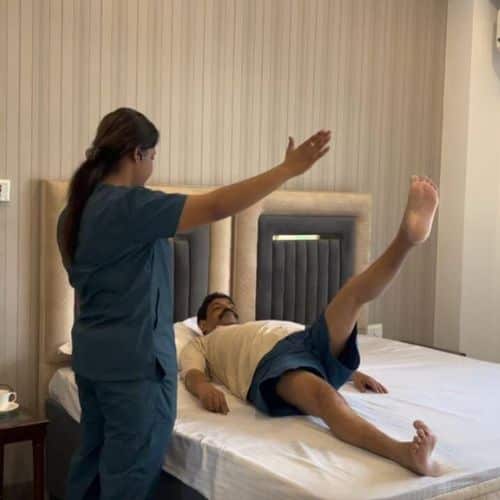
3. Family Feedback
Involving families in the feedback process ensures a holistic view of the residents’ well-being.
- Family Meetings: Regular family meetings provide a platform for open dialogue between staff and families. These meetings allow for the exchange of feedback and ideas, fostering a collaborative approach to resident care.
- Communication Channels: Maintaining open communication channels with families ensures they can share feedback at any time. This ongoing dialogue helps us promptly address any concerns and celebrate successes.
4. Staff Observations
Our dedicated staff plays a crucial role in observing and reporting on the impact of engagement activities.
- Daily Observations: Staff members, who interact with residents daily, provide real-time insights into the effectiveness of activities. Their observations help us make immediate adjustments as needed.
- Monthly Reports: Staff compile monthly reports summarizing resident participation, engagement levels, and observed benefits. These reports provide a comprehensive overview of activity impact over time.
- Training and Development: Ongoing staff training ensures they are equipped to recognize and report on the nuanced impacts of engagement activities. This continuous professional development enhances our ability to measure and improve our programs.
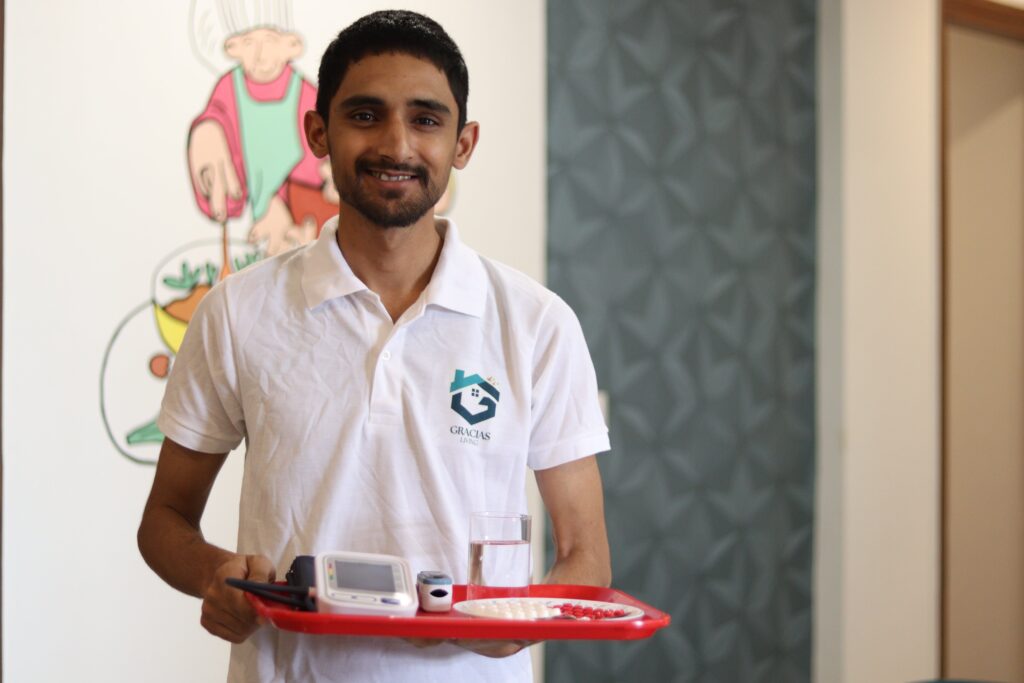
5. External Assessments
Partnering with external experts can provide an objective evaluation of our engagement activities.
- Professional Evaluations: Periodic evaluations by geriatric care professionals and wellness experts offer an external perspective on the effectiveness of our programs. Their assessments help us benchmark against industry standards and best practices.
- Accreditation and Certifications: Achieving and maintaining accreditations and certifications from reputable organizations ensure that our activities meet high-quality standards. These external validations reinforce the credibility of our engagement programs.
Continuous Improvement Through Data-Driven Decisions
Using the data collected from these various sources, we continuously refine and enhance our engagement activities.
- Data Analysis: Analyzing the collected data helps us identify trends, strengths, and areas for improvement. This data-driven approach ensures that our programs evolve to meet the changing needs of our residents.
- Program Adjustments: Based on the analysis, we make informed adjustments to our activities. This could include introducing new activities, modifying existing ones, or discontinuing those that are less effective.
- Resident and Family Involvement: We involve residents and their families in the decision-making process, ensuring that their voices are heard and their preferences are considered. This collaborative approach enhances the relevance and effectiveness of our programs.
- Staff Training: Ongoing training and development for staff ensure they are equipped with the latest knowledge and skills to implement and measure effective engagement activities.
To ensure that our engagement activities are effective, we regularly measure their impact on residents’ well-being.
1. Resident Feedback
We actively seek feedback from residents through surveys, focus groups, and informal conversations.
This helps us understand what activities are most enjoyed and identify areas for improvement.
2. Health and Wellness Metrics
We monitor various health and wellness metrics, such as physical fitness levels, cognitive function, and emotional health.
This data helps us assess the effectiveness of our activities and make necessary adjustments.
Why Choose Gracias Living in Gurgaon For Your Loved One?
Gracias Living is the choice in Gurgaon since it focuses on a dynamic, active community with seniors and solves problems such as isolation and cognitive impairment. The ability of the facility is to use the highly effective engagement activities that are well adapted to the specific needs, interests, and abilities of the residents.
They provide a wide selection of programs, such as physical classes, such as yoga, mental games, such as puzzles, and creativity, which is complemented by an excellent quality of life due to the flexible timetable and considerable support of family participation.
Conclusion
Engagement activities are a cornerstone of life at Gracias Living. They provide numerous physical, cognitive, and emotional benefits that enhance the well-being of our residents.
As we look to the future, we remain dedicated to innovating and expanding our engagement activities to further enhance the lives of our residents.
Our goal is to set new standards in assisted living, making Gracias Living a place where seniors can truly live happily and blissfully enjoying their lives to the fullest.
Frequently Asked Questions
1. What are engagement activities for seniors?
Engagement activities include the events and exercises that aim at promoting the interaction of assisted living residents with other individuals, caregivers, and their physical environment. They possess varying physical, social, cognitive and creative interventions that will achieve complete well-being.
2. What kind of activities do seniors usually enjoy?
The old tend to prefer physical activity in forms of yoga clubs, mental life in the form of puzzles and trivia and recreation like arts and crafts, music therapy and gardening. Social outings and events are also present.
3. Do engagement activities really improve seniors’ mental health?
Yes, The isolation and feelings of loneliness are the major causal factors of depression and anxiety, which are alleviated by constant and substantial interaction activities. The other benefits of them are that they provide a person with a certain element of purpose and achievement.
4. Can families participate in engagement programs?
Yes, the involvement of family is strongly recommended and vital. The facilities colloquially organise Family Days and other special events, which are structured to involve the loved ones with the resident, and this helps in bonding the family.
5. How do engagement activities support physical health?
Other exercises such as chair, walking clubs and mild dancing can also keep the seniors physically fit, enhance balance and avoid sedentary living. Fine motor skills also get maintained through creative processes such as arts and crafts.
